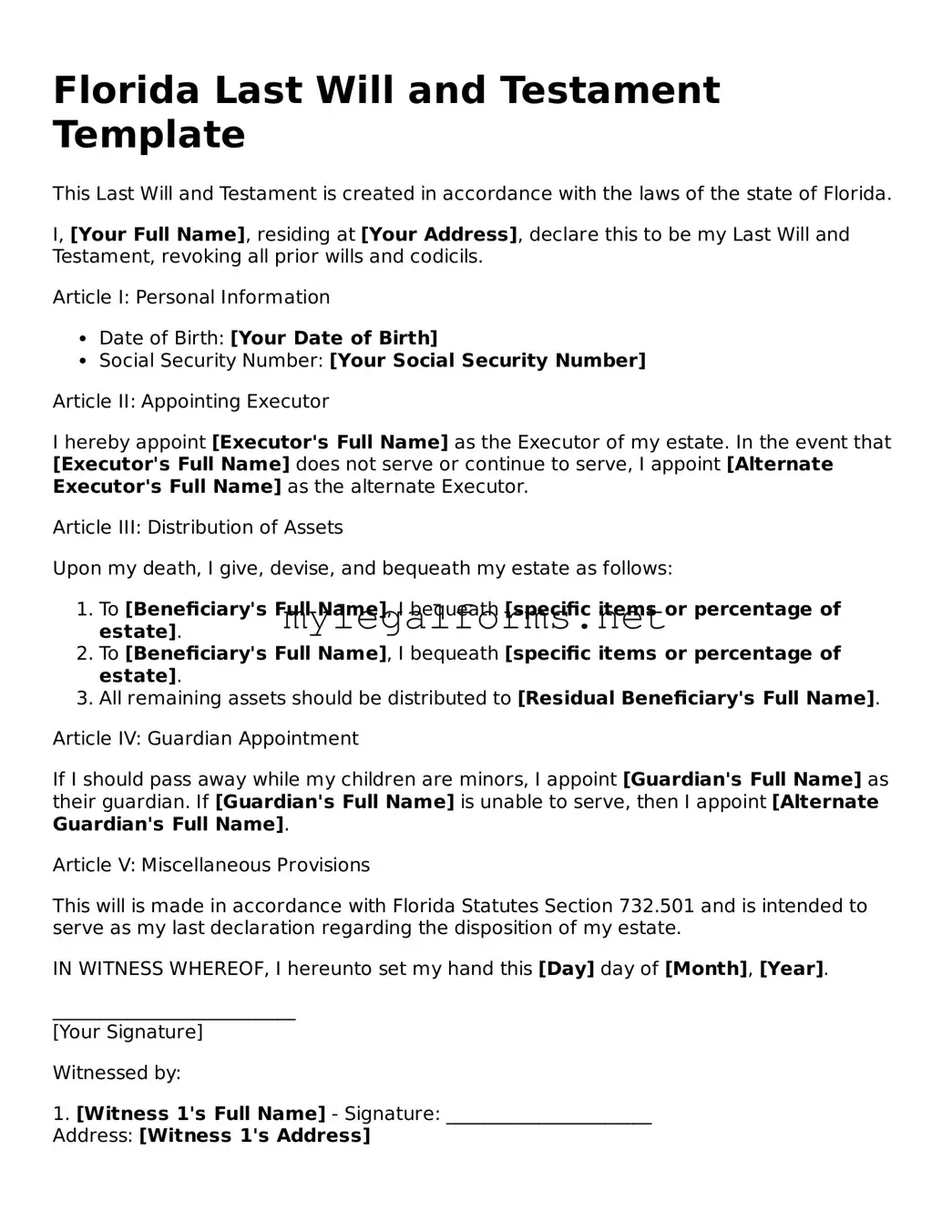Last Will and Testament Document for Florida State
A Florida Last Will and Testament form is a legal document that outlines how a person's assets and affairs should be handled after their death. This form allows individuals to specify their wishes regarding the distribution of their property and the care of any dependents. Understanding this form is essential for ensuring that your intentions are honored and that your loved ones are taken care of.
Launch Last Will and Testament Editor

Last Will and Testament Document for Florida State
Launch Last Will and Testament Editor

Launch Last Will and Testament Editor
or
⇓ PDF Form
Complete the form at your pace — fast
Finish your Last Will and Testament online and download the final version.